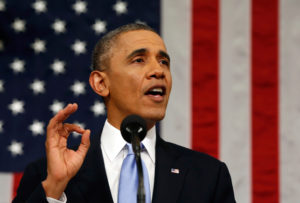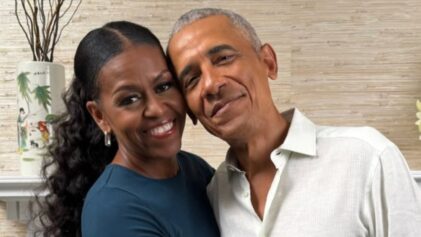
In addition to bringing the nation’s attention to the catastrophe occurring in West Africa, Obama also exhorted the rest of the world to join the effort to control Ebola, warning that the failure to do so could endanger the entire planet.
“In West Africa, Ebola is now an epidemic of the likes that we have not seen before. It’s spiraling out of control,” Obama said. “It is getting worse. It’s spreading faster and exponentially … if the outbreak is not stopped now, we could be looking at hundreds of thousands of people infected, with profound political and economic and security implications for all of us. So this is an epidemic that is not just a threat to regional security — it’s a potential threat to global security if these countries break down, if their economies break down, if people panic. That has profound effects on all of us, even if we are not directly contracting the disease.”
Up to this point, much of the U.S. effort has been concentrated at the CDC, which treated three infected Americans and sent hundreds of health workers to Africa to assist. But when the robustness of the U.S. government and its dollars is directed at a problem, the scale can be overwhelming.
Calling the effort Operation United Assistance, the U.S. will commit as many as 3,000 members of the military in the entire effort, working through a command center that will be established in Liberia, the nation hit hardest by the disease. In addition, the U.S. will do the following: create an “air bridge” to more quickly transport health workers and medical supplies into West Africa; establish a staging area in Senegal to send out personnel more quickly; create a new training site to train thousands of health workers; deploy U.S. Public Health Service personnel to new field hospitals the U.S. is setting up in Liberia; and, through USAID, help distribute supplies and information kits to hundreds of thousands of families.
“Faced with this outbreak, the world is looking to us, the United States, and it’s a responsibility that we embrace,” the president said. “We’re prepared to take leadership on this to provide the kinds of capabilities that only America has, and to mobilize the world in ways that only America can do. That’s what we’re doing as we speak.”
The president said that the death toll is currently beyond 2,400 — “and we strongly suspect that the actual death toll is higher than that.”
“Hospitals, clinics and the few treatment centers that do exist have been completely overwhelmed,” he said. “An already very weak public health system is near collapse in these countries. Patients are being turned away, and people are literally dying in the streets.”
The World Health Organization warned Tuesday that in order to keep the number of infections “within the tens of thousands,” the international community must provide at least $1 billion in additional assistance.
Obama tried to personalize the virus by recounting the experience of one family.
“Let me just close by saying this: The scenes that we’re witnessing in West Africa today are absolutely gut-wrenching,” he said. “In one account over the weekend, we read about a family in Liberia. The disease had already killed the father. The mother was cradling a sick and listless 5-year-old son. Her other son, 10 years old, was dying, too. They finally reached a treatment center, but they couldn’t get in. And, said a relative, ‘We are just sitting.’ These men and women and children are just sitting, waiting to die, right now. And it doesn’t have to be this way.”
Obama called on the rest of the world to step up because “the world has the responsibility to act — to step up, and to do more.”
Obama met in the Oval Office with Dr. Kent Brantly, the American doctor who survived the Ebola virus with the help of the ZMapp miracle drug, before he got on a plane to Atlanta. He said Brantly still needs to gain more weight, but he “looks strong.” The president also met with the staff at Emory University Hospital that successfully treated Brantly and aid worker Nancy Writebol. A third patient arrived last week.
“We have to act fast; we can’t dawdle on this one,” Obama said. “We have to move with force and make sure we are catching this as best we can.”


